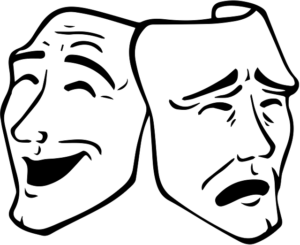There are 1,025,109.8 words in the English language, according to the Global Language Monitor in 2014. How do you end up with .8 of a word you ask? Well, you see- I have no idea.
But what I do know is pretty important.
All of the reputable sources I’ve found agree that English has between 750,000 and 1,000,000 words. As writers, this could intimidate us, but really it’s the most freeing thing in the world. Writing is about choosing to express ourselves in a way that others can understand. If our words are paint, then a larger base lexicon is a larger palette to paint with.
There is a strong movement in writing today that emphasizes the importance of finding one’s voice, and this is terribly important. I don’t disagree. The problem arises when we adapt an attitude of complacency toward the more exotic, varied, and subtle tones of an expanded vocabulary. The often unspoken undercurrent says if I have a unique way of speaking or writing, I never need to stretch myself and learn or incorporate new words.
We’re painting with a starter set when we do this. Sure, with talent a great artist can make it work, but with a larger palette the possibilities are endless. I don’t want the colors to be merely close in my art. I want them to be perfect. Pursuing true fluency in the English language helps me.
Do you know what the word “torpor” means? Sure, you could say “laziness,” but that’s an oversimplification. “Segue” and “transition” have completely different connotations. For some words, such as “rapport,” it’s difficult to even come up with a simpler replacement word to describe the same concept.
True, “vocabulary” may not be as scintillating a subject as voice, inspiration, or character creation, but dedication to the craft of writing means self-improvement in every pertinent area.
Let’s make sure as we go about our art we take the time to learn more of this incredible, beautiful, quirky language that we speak. A word-a-day calendar is a good way to start. Stopping a friend when he uses a term you’ve never heard before is another. Be the kind of person who puts his book down and looks up an unfamiliar word before moving on. It’s a basic and unglamorous concept, but it will make you a better writer.
Now if you’ll excuse me, I’m going to go try and find out how we can have .8 of a word. Go get ‘em, writers.
For more tips, tricks, and writing exercises, check out my book Writing with Purpose.


